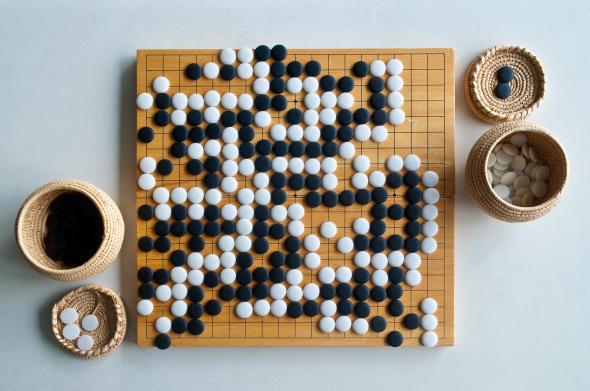Greetings Future Tensers,
Many world leaders have compared cyberweapons to nuclear arms. But as Patrick Cirenza argued in a Future Tense article this week, that analogy is flawed, not least of all because it suggests that we can apply a previous age’s strategies to our current one’s needs. As Robert Morgus explains, similar problems play out in the diplomatic arena, where old standards for warfare have proved inadequate to the realities of online conflict. If you’d like to know more, tune in to Slate’s Facebook page at 1 p.m. on Thursday, March 17, when I’ll be video-chatting with Morgus as we answer reader questions about his article and the state of cyberwar more generally.
On another front, it’s been an interesting week for games but a bad week for some gamers. An A.I. developed by Google played a series of matches against Go world champion Lee Sedol, ultimately defeating him in four of their five bouts. As Ken Jennings, who knows a thing or two about losing to a computer, writes, “The nightmarish robot dystopias of science-fiction movies just got one benchmark closer.” Of course, as Jennings notes, this doesn’t mean A.I. is any closer to matching true human intelligence, but it does show how much better computers are getting at completing specific tasks that have previously eluded them. In any case, there are still things that we can do with games that computers can’t manage alone: The developers of MeQuanics, for example, want to contribute to quantum physics research by getting people to fiddle with a 3-D puzzler.
Here are some of the other stories we read while fiddling with our virtual private networks:
- Print culture: An artist printed out the English-language version of Wikipedia across 7,473 volumes. You can check out the results at the Arizona State University in Tempe. (ASU is a partner with Slate and New America in Future Tense.)
- FBI vs. Apple: The legal showdown over a San Bernardino shooter’s phone has been a rhetorical minefield. Lily Hay Newman cataloged some of the sickest burns.
- Informed voting: When you search for the names of presidential candidates on Google, the company now automatically presents data about how they’ve financed their campaigns.
- 3-D printing: Dental work can be expensive, but one enterprising student made his own retainers with the help of a 3-D printer.
Prophetically yours,
Jacob Brogan
for Future Tense
